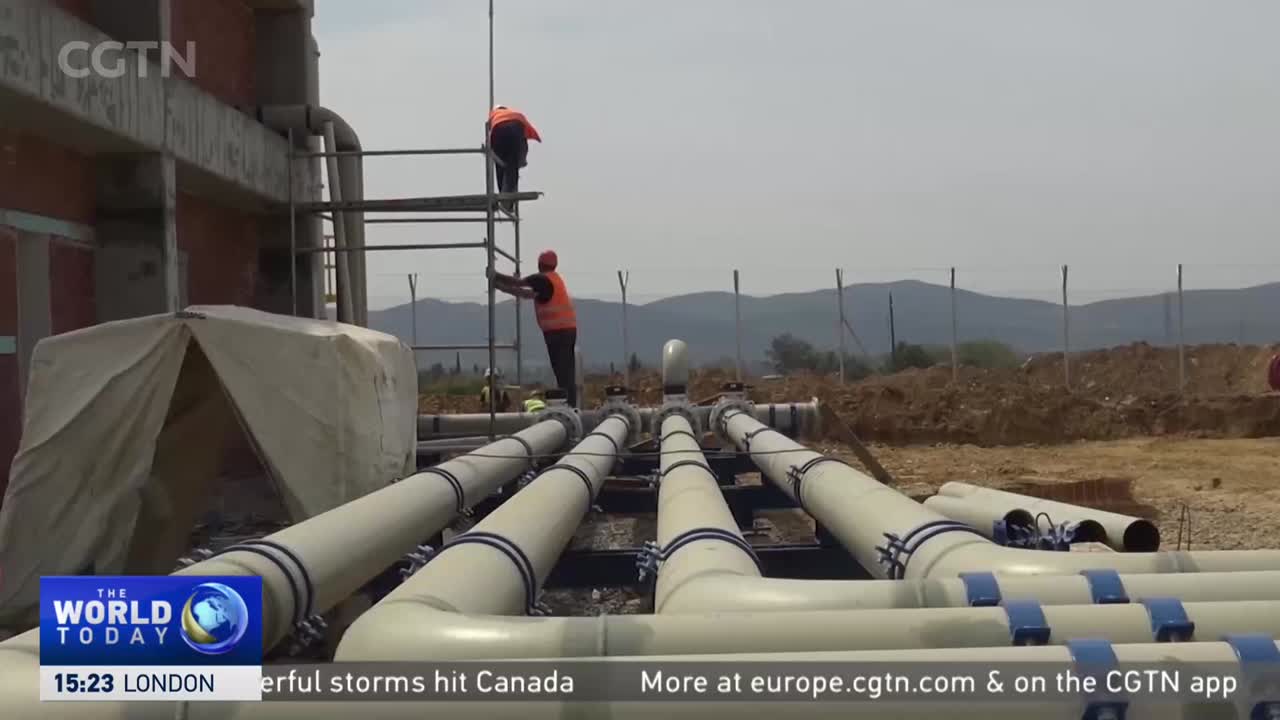02:55

As European Union countries seek to end their reliance on Russian energy supplies, Greece and Bulgaria are building a natural gas pipeline that will be operational in June.
The Gas Interconnector Greece-Bulgaria (ICGB) will allow gas to flow from Greece to Bulgaria and beyond. It will complement the existing European network of pipelines, providing an energy gateway to the Balkans.
"We are working with countries in the region and north Africa," said Bulgarian deputy foreign minister Vasil Georgiev. "Diversification of deliveries to Greece, Romania and neighboring countries will be key because we see that Russia is not reliable."
READ MORE
Mariupol's last stand
What is monkeypox?
McDonald's leaves Russia for good
Funded by Greece, Bulgaria and the EU, the ICGB pipeline will run between the northeastern Greek city of Komotini and Stara Zagora in central Bulgaria.
Gas supplies will be connected to the existing Trans Adriatic Pipeline, allowing gas to be transported from Azerbaijan via Greece to Italy and southeast Europe.
"The power grid is built so countries can store gas in Italy or get gas from Azerbaijan, or from Revithousa terminal, which means they can order from different countries and transport it via our connections," said George Tasako, head of pipelines and networks at AVAX Group.
The new pipeline will also carry gas from liquefied natural gas (LNG) terminals.
Greece plans to increase capacity at its existing Revithoussa terminal, announcing the construction of an additional terminal in the country's north. This will make the country one of the largest energy hubs in southeast Europe.

Europe wants to end its dependency on Russian gas, via pipelines like this Gazprom one in Poland. /Kacper Pempel/Reuters
Europe wants to end its dependency on Russian gas, via pipelines like this Gazprom one in Poland. /Kacper Pempel/Reuters
As Greece plans to become an energy gateway between Balkan countries and the rest of Europe, some experts think it a step in the wrong direction.
Professor Nikolas Farantouris, a senior policy advisor, from the University of Piraeus, is among them.
He said: "Liquefied natural gas today could play an important role of diversification of energy sources, but in the long run my opinion is that European nations, countries in the Balkans and Greece should really think about their energy mixture diversification and not different energy sources or collecting the same type of energy from different countries. They must become less dependent on fossil fuels."
According to European Commission figures, the EU last year imported more than 40 percent of its total gas consumption, 27 percent of oil imports and 46 percent of coal imports from Russia. Energy represented 62 percent of EU total imports from Russia, and cost $106 billion.

